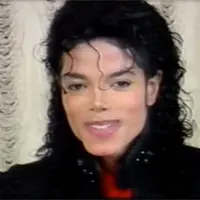HBO's Leaving Neverland is horrifying in a way that transcends language
-

The two-part, four-hour documentary airing Sunday and Monday, which details Michael Jackson allegedly sexually molesting two boys, "is a gutting film that tells the worst tale imaginable," says Rob Harvilla. The film "is horrifying in a way that transcends language. Every vintage photograph of a beaming, prepubescent boy decked out in full MJ cosplay—young (accuser) Wade (Robson) in the dapper white suit from the 'Smooth Criminal' video, for example—is another crushing blow to the head." Harvilla adds: "So much of Leaving Neverland is devoted to broken people describing terrible things but visibly struggling, even now, to fully absorb them. Given the army of people and armada of painful testimony that it has taken to nudge R. Kelly even slightly toward any sense of justice, this new film leaves you both overwhelmed and convinced that even overwhelmed will not suffice to change society’s gut reaction to hearing the first five seconds of 'Billie Jean.' Leaving Neverland tells the worst tale imaginable. You can believe it and still not believe it."
ALSO:
- Leaving Neverland is riveting, sharply convincing and impossible to not view in the context of the #MeToo movement: "It’s no different from what we’ve already seen with such powerful boldface names as Harvey Weinstein, Kevin Spacey and Bill Cosby," says Hank Stuever. "...Here, at last, is the Michael Jackson documentary that has little to no use for the routine adulation of Michael Jackson, particularly the dazzling songs, performances and other proprietary clips that would form the basis of a celebrity rockumentary."
- Leaving Neverland is long but delicately, patiently done — and so quiet: "You can practically hear yourself listening," says Wesley Morris. "It’s not a feat of investigative journalism so much as an act of bearing witness... It doesn’t try to make cultural or political sense of the allegations. It’s not a masterpiece saga about fame, race, gender, sexuality and the legal system; it’s not 'M.J.: Made in America.' ... Leaving Neverland is about one man’s possible contribution to the ruin of two families and the anguish that still disturbs them and, in some way, how that ruin and anguish should disturb us."
- The documentary feels like a conversation-realigning milestone: "It will draw viewers by listing the alleged misdeeds of a pop icon — one who was arguably bigger than the rest, even Bill Cosby — and perhaps inspire many of them to view him through a darker lens, but it is ultimately not about Jackson," says Matt Zoller Seitz. "It’s about two sexual-abuse survivors telling their stories with unprecedented frankness, illuminating not just the sickness of a legend, but the pervasiveness of a crime that exists at every level of society, and that hides behind abuser-friendly notions of despoilment and shame."
- The film's greatest advantage is also its biggest weakness: "HBO's Leaving Neverland is ultimately a tribute to the power of personal testimony," says Eric Deggans, adding: "For Leaving Neverland, the lack of outside voices seems a crucial weakness, especially given that both men sued Jackson's estate years after his 2009 death. Their lawsuits were dismissed after judges said they filed claims too late, but their lawyer plans to file an appeal."
- For something that calls itself a “documentary,” it is woefully one-sided: "For a documentary to be a true work of journalism," says Kristen Baldwin, "it is incumbent upon the filmmaker to solicit comments from the opposing side — in this case Jackson’s estate, his family, etc. — which the estate insists (director Dan) Reed did not do. (On Feb. 21, the estate filed a lawsuit against HBO over Leaving Neverland.) The director has said that he did interview former detectives and prosecutors from the two principal investigations into Jackson, but the only opposing commentary in the film comes courtesy of YouTube videos, featuring wild-eyed fans berating Robson for going public with his claims."
- Leaving Neverland is undeniably heartbreaking, upsetting, and creepy as hell, and you won’t want to miss a minute of it
- Leaving Neverland is flawed for treating race as invisible, even negligible: This story's' racial dimensions shouldn't be ignored
- Director Dan Reed says he originally showed HBO a five-hour rough cut: "HBO’s courage to have it run for four hours is going to make a major difference to the impact of this story"
- The 11 most disturbing Michael Jackson allegations in Leaving Neverland
- Wade Robson and James Safechuck were not compensated for the film: They say did it to "help other survivors"
- Recalling Martin Bashir's 2003 ABC documentary Living with Michael Jackson, which also inspired a Jackson reckoning
TOPICS: Leaving Neverland, HBO, Dan Reed, James Safechuck, Michael Jackson, Wade Robson, Documentaries, Sexual Misconduct
More Leaving Neverland on Primetimer:- TV documentaries are having a real-life impact, from Framing Britney Spears to Surviving R. Kelly to Who Killed Malcolm X?
- From Framing Britney to Allen v. Farrow: Documentaries are influencing how celebrities are perceived
- Leaving Neverland director is trying to film a sequel documentary as he fights legal battles with Michael Jackson's legacy companies
- Appeals court allows Leaving Neverland's Michael Jackson accusers to revive their lawsuits
